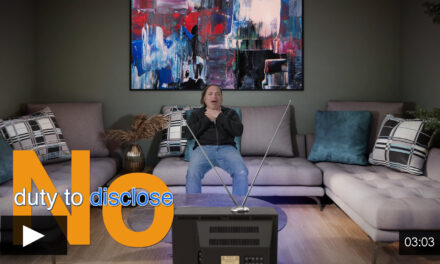Economic hardships brought on by the recession and coronavirus (COVID-19) pandemic are hitting California households hard. Homeowners and renters alike are struggling to make housing payments, but a subset of this group is especially vulnerable.
A study released in June 2017 by the Rosen Consulting Group and the University of California, Berkeley warned that a widespread economic crisis would disproportionately impact mobilehome residents, who are typically older than the general population.
Nearly three years after the study’s publication, its catastrophic message has become a reality. Nine counties and more than 80 cities throughout the state have enacted mobilehome rent stabilization ordinances since March 3, 2020 in response to the pandemic.
Even so, residents and health officials have called on government legislators to do more. Enter AB 2782.
Rental tenancies under AB 2782
Signed into law by Governor Gavin Newsom on August 31, 2020, AB 2782 protects mobilehome owners and tenants from inflated rental increases. Residents of California’s approximately 560,000 mobile and manufactured homes can breathe a small sigh of relief.
Under the new legislation, mobilehome rental agreements are exempt from any ordinance, rule, regulation or initiative measure adopted by any local government which establishes a maximum amount that a landlord may charge for rent. The terms of a rental agreement may prevail over any of the above only during the term of the rental agreement or one or more continuously uninterrupted extensions.
When the rental agreement is not extended and no new rental agreement in excess of 12 months’ duration is entered into, the rent for the space under the previous rental agreement will be the base rent for issues concerning rent regulation. [Calif. Civil Code §798.17 (a)]
The new legislation also calls for an additional disclosure at the top of rental agreements entered into on or after January 1, 1993. The disclosure is to notify the tenant of its rent cap exemption status.
To qualify for AB 2782 protections, the rental agreement needs to:
- be greater than 12 months in duration;
- be entered into between the landlord and a tenant for the personal and actual use of the residence;
- allow the tenant at least 30 days from the date the rental agreement is first offered to accept or reject the rental agreement; and
- allow the tenant who signs a rental agreement to void the rental agreement by notifying the landlord in writing within 72 hours of returning the signed rental agreement. [CC §798.17 1-4]
When the tenant rejects an offered rental agreement or rescinds a signed rental agreement, they are entitled to accept a rental agreement for a term of 12 months or less from the offered rental agreement’s start date. [CC §798.17(c)]
Further, a tenant who elects to have a rental agreement for a term of 12 months or less is entitled to the same rental charges, terms and conditions as the rental agreement offered. [CC §798.17(c)]
When a rental agreement is first offered to a mobilehome tenant, the landlord needs to provide written notice of their rights:
- to have at least 30 days to inspect the rental agreement; and
- to void the rental agreement by notifying the landlord in writing within 72 hours of receiving a copy of the rental agreement. [CC §798.17 (f)]
The failure of the landlord to provide the written notice makes the rental agreement voidable by the tenant upon their discovery of the failure.
Any rental agreement entered into on or after January 1, 1993 needs to include a provision authorizing automatic extension or renewal of the rental agreement for a period beyond the initial stated term. [CC §798.17(g)]
The section on rental tenancies in AB 2782 does not:
- apply or supersede other provisions of this law or other state law;
- apply to any rental agreement entered into on or after January 1, 2021; or
- include any rental agreement entered into from February 13, 2020 to December 31, 2020.
Termination of tenancies under AB 2782
AB 2782 also protects tenants from wrongful termination. Under the new law, a tenancy may be terminated by the landlord for:
- failure of the tenant to comply with a local ordinance, state law or regulation relating to mobilehomes within a reasonable time after they receive a notice of noncompliance from a government agency;
- conduct by the tenant on the premises, which constitutes a substantial annoyance to others;
- conviction of the tenant for prostitution or a felony controlled substance offense, which was committed on the premises; or
- the tenant’s failure to comply with a reasonable rule or regulation of the park that is part of the rental agreement. [CC §798.56 (a)(b)(c)(d)]
Further, the landlord needs to give written notice of the violation and seven days to comply. When a tenant has been given a written notice of an alleged violation of the same rule or regulation three times or more within a 12-month period, no written notice is required. [CC §798.56]
A tenant who fails to pay rent, utility charges or reasonable incidental service charges and has been given five days from the due date will be given a three-day written notice to pay the amount due or vacate. [CC §798.56(e)]
Payment by the tenant prior to the expiration of the three-day notice will cure the default. When the tenant does not pay prior to the expiration of the notice, they will be liable for all payments due up until the time the tenancy is vacated. [CC §798.56 (2)]
Further, payment by the legal owner, any junior lienholder or the registered owner within 30 days following the mailing of the notice may cure the default. However, this may not occur more than twice during a 12-month period. [CC §798.56 (e)]
When a tenant has been given a three-day notice to pay the amount due or vacate the tenancy on more than three occasions in a 12-month period, the landlord may give written notice to remove the mobilehome from the park within 60 days.
The legal owner, junior lienholders and the registered owner of the mobilehome may cure the default on behalf of the tenant within 30 days of the 60-day notice’s mailing, if:
- a copy of a three-day notice sent to a tenant for the nonpayment of rent, utility charges or reasonable incidental service charges was not sent to the legal owner, junior lienholder or registered owner of the mobilehome during the 12-month period;
- the legal owner, junior lienholder or registered owner of the mobilehome has not previously cured a default of the tenant during the preceding 12-month period; and
- the legal owner, junior lienholder or registered owner is not a financial institution or mobilehome dealer. [CC §798.56 A-C]
When the default is cured by the legal owner, junior lienholder or registered owner within the 30-day period, the notice to remove the mobilehome is rescinded.
Change of use of mobilehome park
New rules apply under AB 2782 for those in management looking to change the use of their mobilehome park.
The new law states tenants need to be given at least 60 days’ written notice that management will be appearing before a local governmental board, commission or body to request permits for a change of use of the mobilehome park. [CC §798.56 (l)]
When the permits are approved by the local government or board, the landlord is required to give tenants six months’ or more written notice of termination of tenancy. If the change of use requires no local government permits, then tenants are to be given 12 months’ notice or more prior to the management’s determination that a change of use will occur. [CC §798.56 (2)]
Conversion of mobilehome park
Before the mobilehome is converted for another use, the persons or entity proposing the change need to file a report on the impact of the conversion, closure or cessation of use of the mobilehome park. This includes a replacement and relocation plan. [CC §65863.7 (a)(1)]
When a resident does not obtain adequate housing in another mobilehome park, the persons or entity responsible for proposing the change of use need to pay the displaced resident the in-place market value of their mobilehome.
The in-place market value will be determined by an appraiser with mobilehome experience, paid for by those responsible for the park’s change of use.
Further, those proposing the change in use need to provide a copy of the appraisal report to a resident of each mobilehome in the mobilehome park at least 60 days prior to the hearing, if any, on the impact report by the advisory agency or legislative body. [CC §65863.7 (C)]
When the impact report is filed prior to the closure or cessation of use of the mobilehome park, the entities responsible for proposing the change need to provide a copy of the report to all mobilehome residents. Park residents may request a hearing before the legislative body on the sufficiency of the report. [CC §65863.7 (C)(d)]
Before any change of use is officially approved, the legislative body must:
- review the report and any additional relevant documentation; and
- make a finding as to the approval of the park closure and the park’s conversion into its new intended use, including taking into consideration the impact report and housing availability within the jurisdiction.[CC §65863.7(A)(AB)]
These new protections for mobilehome residents under AB 2782 offer a sigh of relief for some of California’s most vulnerable residents. As the recession and pandemic drag on, residents will look to Sacramento and Washington D.C. to continue to pass legislation to protect homeowners and renters in California.














